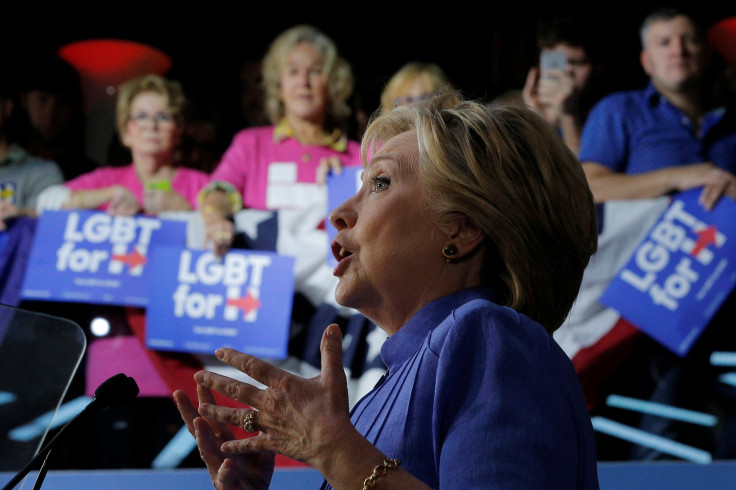Hillary Clinton vs. Labor Unions: WikiLeaks Emails Show Campaign's Disgust, Confusion

Several email exchanges published by WikiLeaks show top Hillary Clinton campaign aides were dismissive of major unions such as the United Automobile Works (UAW) and the United Brotherhood of Carpenters (UBC). The aides did not want the Democratic nominee attending events involving the unions, according to the emails.
In one exchange, Clinton aide Huma Abedin was noncommittal and wrote that the former secretary of state “would look at her schedule and see if she could attend” conventions for UAW and UBC in order to obtain their endorsements. Other aides responded more firmly with phrases like “Ugh” and “At least we didn’t say we would go!”
FBI Director James Comey announced a warrant was being served to search emails linked to Hillary Clinton, and Abedin is at the center of the latest controversy. Comey told Congress on Friday that the agency had discovered more emails that may be relevant to Clinton's handling of classified information as part of an unrelated sexual misconduct investigation into Abedin's estranged husband.
Email exchanges involving other Clinton aides also betrayed the campaign's distrust of unions. When it came to earning the support of New York’s 1199 SEIU, the biggest healthcare union in the state, Clinton’s labor outreach director Nikki Budzinski wrote, “They’re just super big in size, from NY and could create real political headache I think.”
Another email chain showed the Clinton campaign tweeted a response to the U.S. Supreme Court agreeing to hear a case that could result in workers paying for collective bargaining rights. A brief response like a tweet — which is restricted to 140 characters — rather than a fully detailed statement could be viewed as the campaign’s less than full-throated support of the topic.
Earlier this month, other WikiLeaks emails showed the Clinton campaign perhaps focusing too much on political strategy when it came to framing its response to labor unions, which had backed the controversial Keystone XL oil pipeline, and the candidate’s relationship with environmentalists, Reuters reported.
"Could we mention that ... as we transition HRC wants to create more careers within the new energy economy? Careers is their buzz word," Budzinski wrote, using Clinton's initials.
Budzinski’s comment could be interpreted as the Clinton campaign not being fully behind the labor unions and environmentalists and instead politicizing the issues of as a means to gain public support.
Clinton has received many more endorsements from labor unions than her Republican rival Donald Trump. Yet her relationship with unions has been clouded by Clinton's positions on trade, her ties to Wall Street and a long primary battle with Bernie Sanders, a self-described democratic socialist.
Unions have been major fundraisers for Clinton's campaign. The AFL-CIO, a massive conglomeration of trade unions, reportedly raised $11.5 million in direct contributions and for PACs during this election cycle, BuzzFeed reported last week. Service Employees International Union raised $30 million and the American Federation of Teachers raised another $10.6 million.
© Copyright IBTimes 2024. All rights reserved.





















